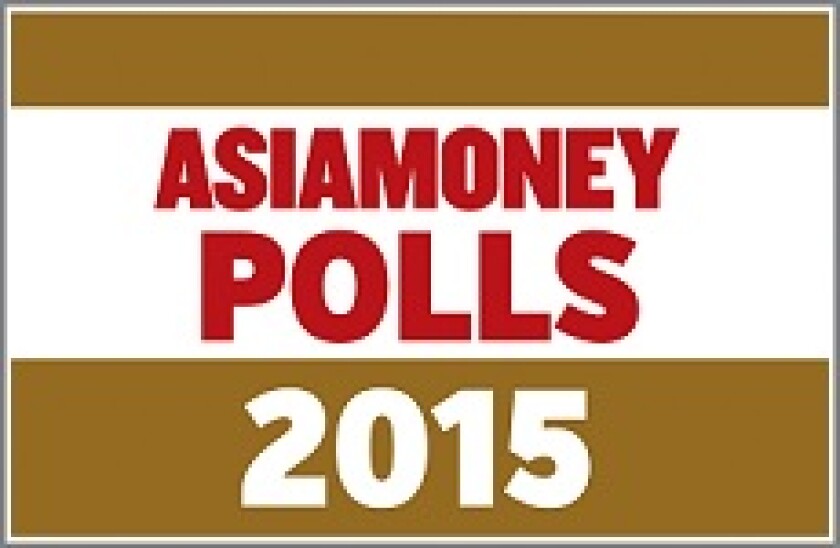Asiamoney’s fourth Offshore RMB Poll, the largest and most competitive ever, saw HSBC and Standard Chartered battle it out for top spot. With 1,276 valid responses from corporates, financial institutions and investors, a 32% increase from last year, Asiamoney’s Offshore RMB Poll is growing at a healthy pace and remains the largest and most comprehensive poll of its kind in the Asia-Pacific region (see below for full results).
While HSBC has reigned supreme for the last three years, this year Standard Chartered mounted a very creditable challenge, indicating it has done its work in both range and quality of products and services. HSBC was ultimately able to defend its title for one more year, but things are unquestionably heating up in the offshore RMB market space. A few big banks are turning out more quality products and services and have their eyes on the prize for next year.
“We are building on our market leading position, and we are investing to roll out our RMB servicing capabilities internationally, with the aim of capturing a larger share of offshore RMB foreign exchange and capital markets opportunities," says Candy Ho, global head of RMB business development at HSBC. "Last year we consolidated our leadership of the rapidly growing RMB market, leading to increased revenue from RMB products."
Rival Standard Chartered is making sure it is also ahead of the curve. “We’ve been helping clients to navigate the complex regulatory environment as well as providing them with bespoke RMB solutions to fully capture potential RMB opportunities," says Carmen Ling, managing director and head of RMB solutions, corporate and institutional clients, at StanChart.
"We’re the only foreign bank in China that holds all of the key licences required to operate in China’s primary and secondary onshore bond markets. Our dedicated RMB trading teams are based in all key offshore RMB markets across various time zones and offer seamless coverage, timely information and customised solutions; we seek to further our presence across all offshore RMB markets.”
The ranks outside the top three in the poll are also highly contested, with interesting movements each year. Hang Seng has improved by jumping two places to sixth, and as a major local player more is certainly to be expected from Hang Seng in the offshore RMB sector. DBS also improves, returning to the top 10 for the first time since 2012. Likewise ICBC returns to the ranks after slipping away in 2014.
Bank of China, as expected, rests comfortably within the top five, as in previous years, and so does Bank of Tokyo-Mitsubishi. China Construction Bank drops to 10th, however, while BNP Paribas and JP Morgan disappear from the top 10 completely.
As the internationalisation of China’s currency gathers further momentum, banks the world over are trying to win customers with expanding and better quality products and services. But there are many variables in the offshore RMB environment as the currency steps into the fore. Corporates need to understand the continuously evolving RMB-related regulations and use the new RMB policies from Beijing to maximise their competitive advantages. As market complexity intensifies with such rapid changes, there is an increasing need to work closely with banks.
“The opening up of China's capital markets and relaxation on financial controls mean more investment opportunities, with expanded channels for both onshore and offshore institutions," adds HSBC's Ho. "However, there will be increasing RMB two-way volatility, so investors who are trading with China or have investments in China should consider more risk hedging.
"There is also a need for a deeper FX market and a more developed banking sector to help reduce transaction cost and improve hedging ability."



